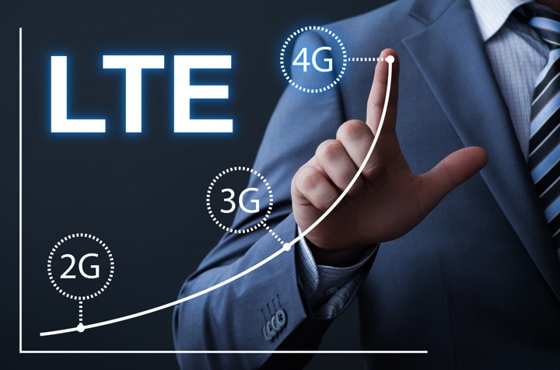The launch of 4G licenses in Egypt will help boost low user revenue for telecoms companies and improve service quality, with operators upgrading their infrastructure in preparation for commercial deployment, but the changes will see a shake-up of the competitive landscape as a result.
Four licenses are currently on offer, with Telecom Egypt (TE), the nationwide fixed-line operator, having acquired one at the end of August for LE7.08bn ($796.5m). The 15-year license, which also includes 2G and 3G services, can be extended for another five years.
The other three mobile operators – Etisalat Misr, Orange Egypt and Vodafone Egypt – have also been approached by the National Telecom Regulatory Authority (NTRA), the sector regulator, who has set a deadline for September 22 to finalize their agreements.
The move will allow TE to enter the mobile telecoms market directly within six months; it already holds a 45% investment stake in Vodafone Egypt. In preparation for this step, the company is positioning itself as an all-inclusive operator and has begun rolling out 4G infrastructure, including fiber-optic cables.
“We will offer additional frequencies for the new 4G licenses,” Yasser El Kady, minister of communications and information technology, told OBG. “This should allow Egyptian consumers to benefit from improved service.”
The country hopes to raise a combined LE22.3bn ($2.5bn) in license fees, El Kady added.
Growth prospects
Fierce competition and low pricing have been defining features of the Egyptian telecoms industry in recent years, driving operators to pursue higher-value-added data services to compensate for declining voice revenues.
"Average revenue per user is among the lowest in the world at around LE23 ($2.59) per month,” Yves Gauthier, the outgoing CEO of Orange Egypt, told OBG. “But it can be increased through boosting different usages, such as data, and developing new services.”
He estimates that data volumes will double every year, underscoring the importance of continued investment in capacity and spectrum.
As of May, there were 26.53m mobile internet subscribers in Egypt out of a population of 90m, according to the Ministry of Communications and Information Technology (MCIT); overall mobile penetration is much higher, at 108.23% according to MCIT’s June figures.
License conditions
The NTRA determined the prices of the 4G licenses to be LE3.5bn ($395.6m) for both Orange Egypt and Vodafone Egypt, and LE4.5bn ($507.2m) for Etisalat Misr, with 50% of these values to be paid in US dollars.
Orange Egypt also disclosed that it was offered a landline license for LE100m ($11.3m), which would allow it to compete with TE, and an international gateway license for LE1.8bn ($202.8m). Currently, only TE and Etisalat Misr operate international gateways, leasing access to other operators.
The regulator asserts that by offering TE mobile licenses, and opening up landline and international gateway licenses to incumbent operators, it is giving all players the opportunity to compete on a level playing field.
Global investment interest
The issue of new licenses is also tempting new market entrants: Saudi Telecom and Lebara of Saudi Arabia were recently in Egypt to discuss potential investment opportunities, including the possibility of acquiring a 4G license.
In mid-July Kuwaiti telecoms provider Zain, which already has a commercial presence in eight MENA markets, also made a formal request to acquire a 4G license in Egypt.
In a filing to the Kuwait Stock Exchange, the operator said that it was “studying a number of investment opportunities available in the region, one of which is the Egyptian telecommunications market as a strategic market in the Middle East and Africa”.
In addition, other international operators have expressed interest in the licenses, according to senior Egyptian officials quoted in the international press.
Oxford Business Group
9 August

























































